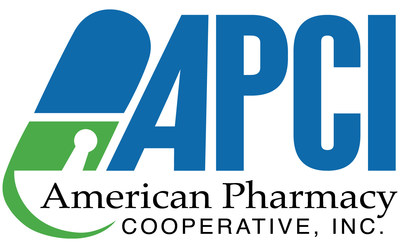Alabama
Anti-competitive Drug Middlemen Practices Harming Patients, Payers, and Pharmacies, APCI Tells FTC
BESSEMER, Ala., May 26, 2022 /PRNewswire/ -- The federal government must use its authority to scrutinize and police anti-competitive practices used by middlemen in the prescription drug chain, American Pharmacy Cooperative, Inc. (APCI) wrote in comments to the U. S. Federal Trade Commission (FTC).
APCI's calls for action against pharmacy benefit managers (PBMs) came in response to a Request for Information from the FTC as the commission considers whether to launch a study into PBM practices.
"Large PBMs have demonstrated a commitment to practices that negatively impact drug affordability, access to needed medications, and access to pharmacy care in communities where patients reside," APCI wrote to the commission.
In addition to urging the FTC to act against PBMs in its comments, APCI also included a laundry list of examples of commonly used PBM practices that are harmful to patients, taxpayers, and small businesses. The co-op detailed practices such as drug coverage decisions that force patients to obtain far more expensive brand-name medications when cheaper generic medications are available; utilizing secretive reimbursement methods that inflate prescription drug prices; and steering patients to PBM owned/affiliated mail order pharmacies, specialty pharmacies, and retail pharmacies.
"Together these practices raise drug prices and compromise patient choice, patient outcomes, and competition," APCI stated in its comments.
"APCI and its member community pharmacists are grateful to the FTC for seeking input on how PBM practices raise drug prices and restrict access to drugs," said APCI CEO Tim Hamrick. "APCI stands ready to work with the FTC and Congress to rein in anti-competitive large PBM practices, lower costs, and improve transparency in the prescription drug chain where self-dealing and patient steering are not tolerated."
"It is no exaggeration to say that no one is better positioned than community pharmacy to reveal PBM anti-competitive practices and understand the harms to consumers and pharmacies alike," stated Greg Reybold, APCI's Director of Healthcare Policy and General Counsel. "Large PBMs sit in the middle of the prescription drug supply chain and manipulate every side of it to the detriment of payors, patients, pharmacies, and physicians for their own selfish gain and profit."
Added Bill Eley, APCI's Director of Legislative Affairs: "Large PBMs can no longer be trusted to set drug prices, pass back negotiated discounts from drug makers and pharmacies, and design networks. While we remain optimistic that an investigation into PBM practices will be forthcoming because of the public comments received by the FTC, APCI will continue to advocate for congressional action at the federal level to implement transparent drug pricing and stop anti-competitive PBM practices."
About APCI
APCI is a member-owned cooperative of more than 1,600 member pharmacies in 30 states. Established in 1984 and headquartered in Bessemer, Ala., APCI is proud to lead the fight for prescription drug pricing transparency and reform.
![]() View original content to download multimedia:https://www.prnewswire.com/news-releases/anti-competitive-drug-middlemen-practices-harming-patients-payers-and-pharmacies-apci-tells-ftc-301547123.html
View original content to download multimedia:https://www.prnewswire.com/news-releases/anti-competitive-drug-middlemen-practices-harming-patients-payers-and-pharmacies-apci-tells-ftc-301547123.html
SOURCE American Pharmacy Cooperative, Inc.

